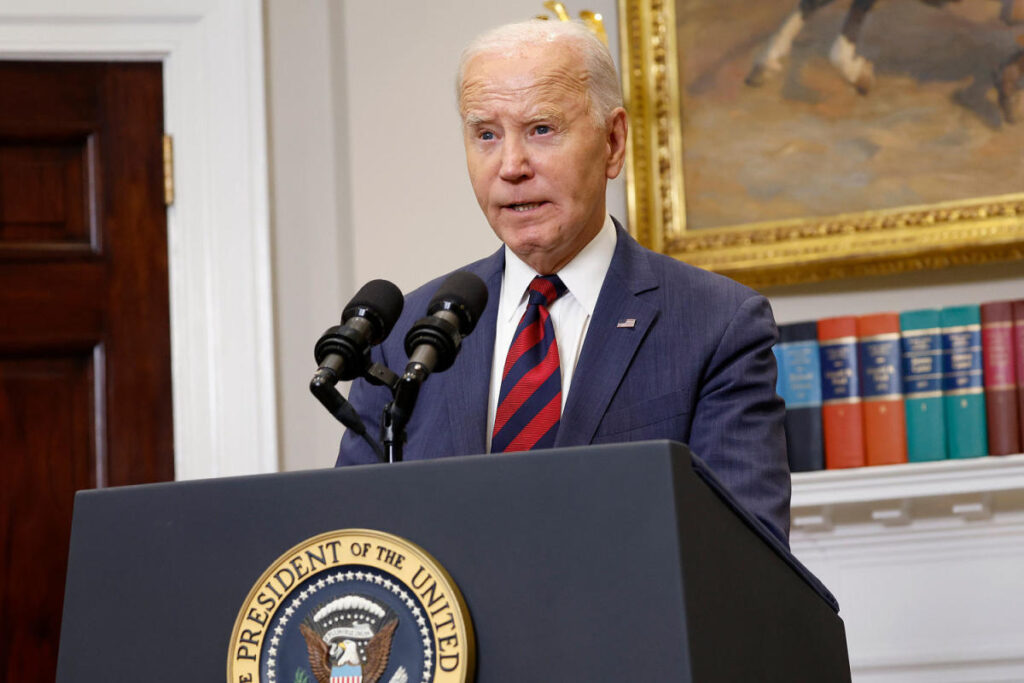President Joe Biden’s recent comments regarding Florida Governor Ron DeSantis during a press conference have drawn attention amidst a growing controversy between DeSantis and Vice President Kamala Harris over hurricane recovery efforts tied to Hurricane Helene. A source familiar with the situation noted that Biden had not been briefed on the ongoing exchanges between DeSantis and Harris before he characterized DeSantis as “gracious.” The conflict ignited after Harris attempted to contact DeSantis regarding the consequences of Hurricane Helene, to which he declined, accusing her of trying to “politicize the storm.” This led Harris to label his actions as “utterly irresponsible” and “selfish,” prompting significant media coverage.
As Hurricane Milton approached Florida, characterized as a Category 3 storm with winds reaching 120 miles per hour, Biden took the opportunity during a televised address to caution the public about the potential devastation the hurricane could unleash. A reporter questioned whether DeSantis should be responsive to Harris’ attempts to communicate, to which Biden responded by complementing DeSantis for his cooperation and gratitude towards federal assistance. Biden stressed the importance of working together amidst the looming catastrophe and refrained from critiquing Harris’s position, choosing instead to highlight the significance of the disaster recovery efforts.
In his statement, Biden emphasized the severity of Hurricane Milton, underscoring its potential to cause historical damage to Florida. He took the opportunity to denounce misinformation surrounding the events of Hurricane Helene and directly called out former President Donald Trump for promoting false narratives related to the storm. This contrast in Biden’s tone compared markedly to Harris’s earlier comments, in which she urged leaders to prioritize people over politics during crises. She condemned attempts to politicize the situation and labeled such actions as irresponsible and selfish in light of the urgent needs of those affected by the hurricane.
The underlying tension between DeSantis and Harris has further escalated, with DeSantis recently lambasting Harris on Fox News for her attempts to bring politics into the storm recovery process. He asserted that in his past experiences dealing with storms under both President Trump and President Biden, he had successfully collaborated with both leaders without politicizing the events. DeSantis accused Harris of being the first to politicize the current hurricane situation, suggesting that her motivations were linked to her campaign rather than genuine concern for the victims. His remarks illustrated a growing partisan divide, particularly as both sides leverage the ongoing humanitarian crisis for political capital.
Insider sources indicated that Biden was not privy to the back-and-forth between Harris and DeSantis during his address and was focused on addressing the impending hurricane’s impact and coordinating disaster response efforts. This detachment raised questions about the administration’s internal communications and the relationship between the Biden administration and the Florida governor, especially in the context of emergency situations. While Biden’s praise for DeSantis may have seemed inappropriate to some commentators amid the confrontational dynamic with Harris, it reflects the complexity of political cooperation during times of disaster.
The incident highlights broader themes of leadership, crisis management, and the intersection of politics and disaster recovery. As the nation contemplates the best ways to handle such emergencies, the responses from various political figures reveal contrasting philosophies. Biden’s cooperation with DeSantis has highlighted a potential avenue for cross-party collaboration in crisis response, while Harris’s strong position against political maneuvering stresses the necessity for priority placement of public welfare over political agendas during times of crisis. Such dynamics will continue to shape narrative discourse as the nation navigates its response to the devastating effects of natural disasters.

